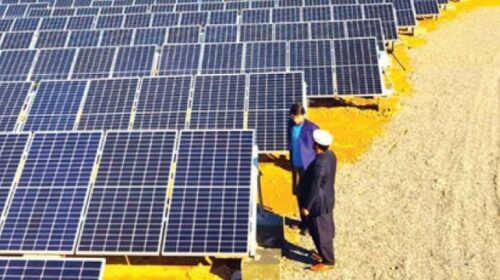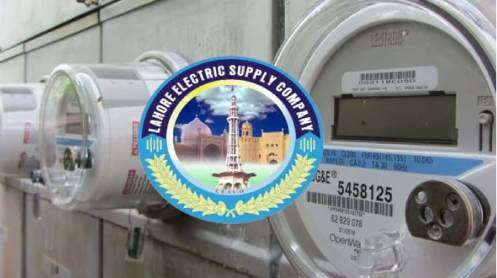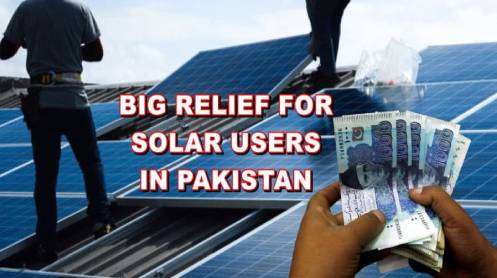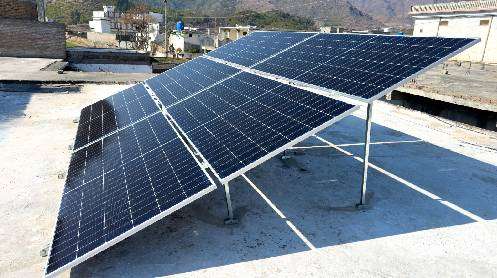The government plans to add 9,000 megawatts of solar energy to the national grid, as an alternative energy source to the costly electricity being generated using imported fuel, under an initiative that includes waiving of all import duties along with tax incentives.
Earlier this month, the government announced plans to launch solar power projects of around 14,000 megawatts this year. Keeping in view the recent hike in electricity prices following the rise in fuel cost, the government is kicking off 9,000MW projects under ‘Solar Energy Initiatives’ on priority.
Sources claim that the government will ensure the substitution of imported fossil fuels through investment in and generation of 6,000MW of solar energy.
It will also initiate a project of 2,000MW of solar PV generation on 11kv feeders and an additional 1,000MW to solarise public sector buildings. In a bid to initiate solar PV generation on kv feeders, the government has selected various sites in south Punjab.
To ensure successful execution of the projects, the government will introduce a straight-line tariff through single-stage, two-envelope bid process and 70% indexation of tariff on a quarterly basis. In addition to this, friendly countries will be offered attractive tariffs that will be less than the last solar PV project tariff and benchmark tariffs for projects on a government-to-government basis.
Under the new solar energy initiatives, the government will purchase all power generated on a 25-year BOOT (Build, Own, Operate and Transfer) basis and will also give 12 months for Energy Purchase Agreements (EPA) signing under Commercial Operation Date (COD).
Land for the solar projects will be provided by the government as well as a guarantee power off-take. Investors will be exempt from all import related duties and taxes; income tax on profits and gains will also be exempt for the first 10 years from COD.
According to sources, foreign exchange for the project shall be arranged from abroad with the government providing payment guarantee on the 60th day after invoice through bank debit.
The government is also set to announce policy incentives for solar PV generation on 11kv feeders which will provide incentives for 4MW solar generation to be installed at 11kv feeders through a single-stage, two-envelope bid process. Under these solar policy initiatives, bidding will be carried out by power distribution companies (DISCOs) for each feeder.
The government will offer a straight-line tariff and 50% Pak CPI quarterly indexation with a cap of 15%. Investors will be bound to complete CODs within 180 days of EPA signing. Fiscal incentives under the laws of Pakistan prevalent on the date of the bid submission will continue to apply.
Payment will be guaranteed on the 30th day after invoice through the first charge on the collection account of DISCOs that will be assigned to SPV in lieu of the Implementation Agreement (IA).
Solar PV rooftop net-metering based systems will also be installed through bidding on a lease model, and will also take place on a 10-year BOOT basis or on an own-cost model.
Standard bidding documents will be prepared by the Alternative Energy Development Board (AEDB) who will also maintain a pool of third-party consultants for technical evaluation of the bids and certification of the installed solar PV systems.
The government department will provide roof space for solar installation and minimum energy yield will be guaranteed by the vendor. All the power generated will become property of the government.
For the lease model, fixed quarterly payments will be determined through bidding and will be guaranteed in advance preferably through revolving BG.







